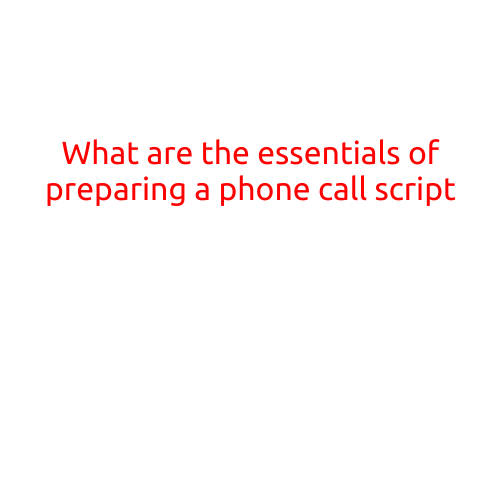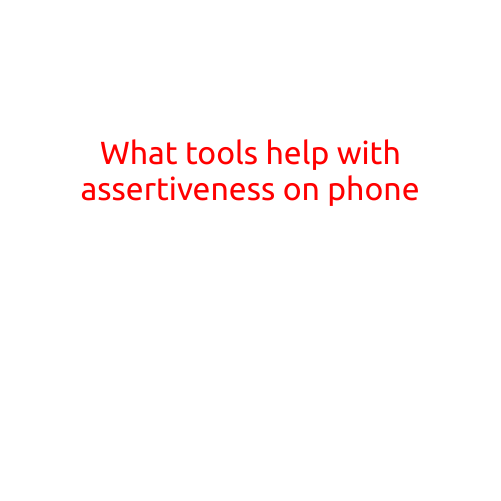
What are the Essentials of Preparing a Phone Call Script?
When it comes to making a significant impact on potential clients, customers, or prospects, a well-crafted phone call script is essential. A phone call script helps you stay organized, focused, and articulate during a conversation, increasing the chances of achieving your objectives. In this article, we’ll explore the essentials of preparing a phone call script that drives results.
I. Define Your Objective
Before you start crafting your phone call script, identify your goal. What do you want to achieve from the call? Is it to:
- Schedule a meeting or demo?
- Conduct a survey or gather feedback?
- Close a sale or generate leads?
- Build rapport and establish a relationship?
Knowing your objective will help you tailor your script to focus on the most important aspects.
II. Know Your Audience
Understanding your target audience is crucial in creating a phone call script that resonates with them. Consider the following:
- Who are your prospects or clients?
- What are their pain points or challenges?
- What are their interests or goals?
- What are their buying behaviors or decision-making processes?
By understanding your audience, you’ll be able to craft a script that speaks to their needs, preferences, and concerns.
III. Keep it Concise and Straightforward
A phone call script should be concise and easy to follow. Aim for a script that is:
- 1-2 minutes long
- Broken down into clear sections or stages
- Focused on key points or talking points
- Free from jargon and technical terms
A concise script ensures you stay on track and avoid meandering or wasting time.
IV. Use a Friendly and Professional Tone
Your tone sets the tone for the conversation. Use a friendly and professional tone to:
- Establish rapport and trust
- Show enthusiasm and interest
- Build credibility and authority
Avoid being overly formal or stiff, as this can come across as robotic or unengaging.
V. Incorporate Listen-Ask-Respond
Active listening is critical in phone calls. Incorporate the following structure into your script:
- Listen: Allow the prospect to share their thoughts, concerns, or needs.
- Ask: Ask open-ended questions to gather more information and encourage conversation.
- Respond: Provide relevant information, insights, or solutions that address the prospect’s concerns.
This structure helps you build rapport, gather valuable information, and provide targeted responses.
VI. Practice and Refine
Practice your script several times before making the actual call. Record yourself, review the recording, and refine your script as needed. Practice also helps you:
- Feel more comfortable and confident
- Develop a natural flow and delivery
- Identify areas for improvement
VII. Be Flexible and Adaptable
A phone call script is a guide, not a rigid framework. Be prepared to adapt and adjust your script based on the conversation’s flow and the prospect’s feedback.
VIII. Monitor and Evaluate
Track your phone call script’s performance by monitoring:
- Conversion rates
- Call-to-action metrics
- Feedback from prospects or clients
Use this data to refine and improve your script, ensuring it continues to drive results.
In conclusion, preparing a phone call script requires careful consideration of several essential elements. By defining your objective, knowing your audience, keeping it concise, using a friendly and professional tone, incorporating listen-ask-respond, practicing and refining, being flexible and adaptable, and monitoring and evaluating, you’ll create a phone call script that drives results and advances your goals.





